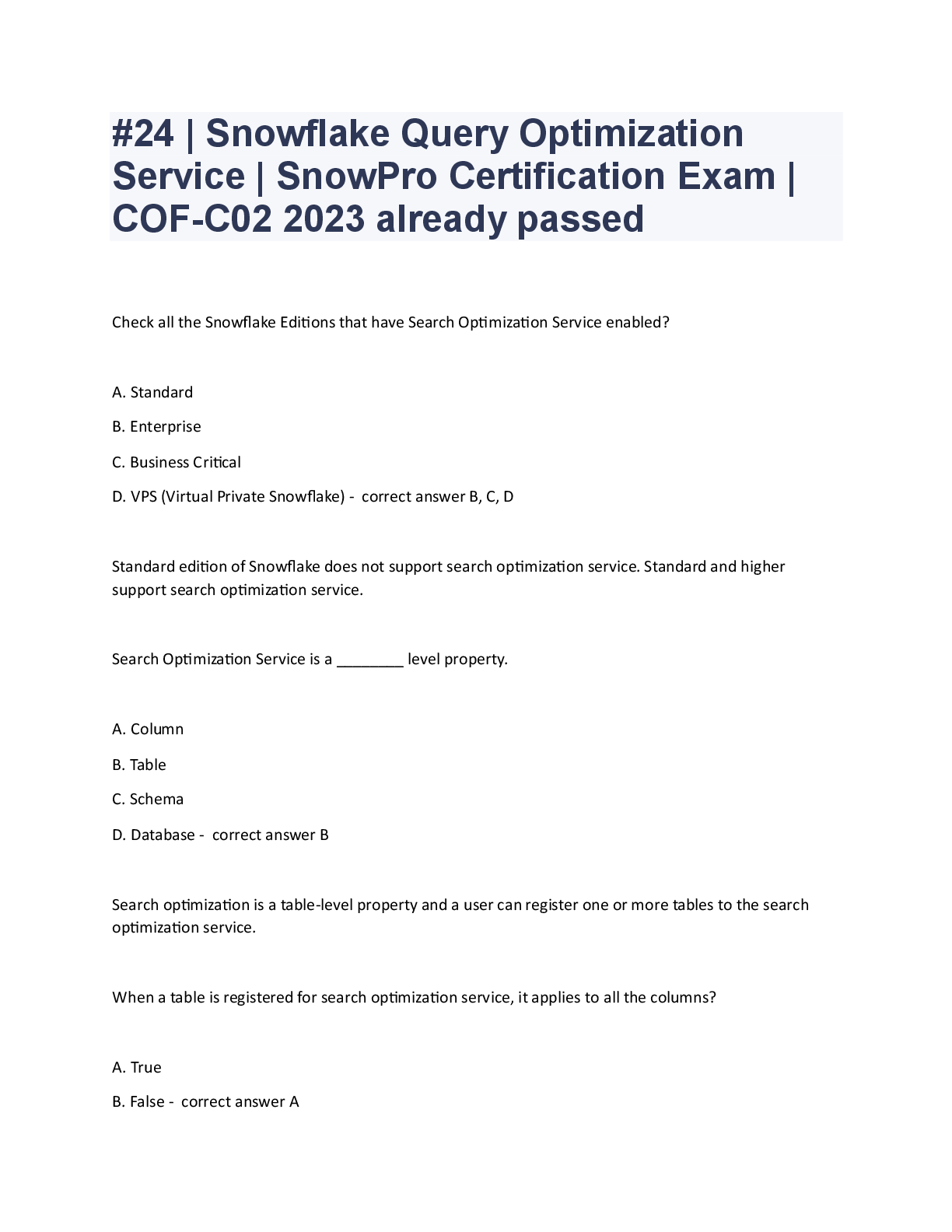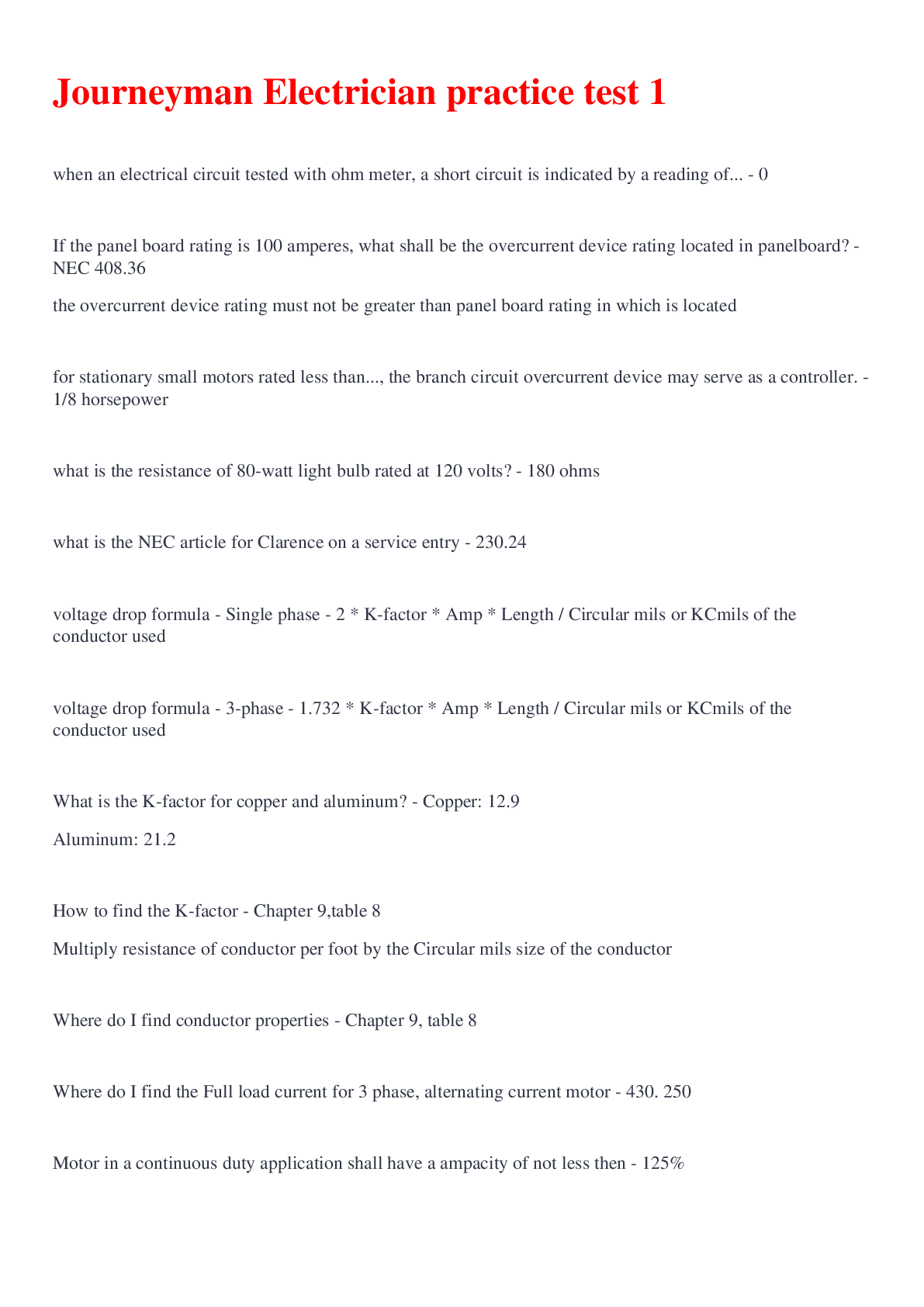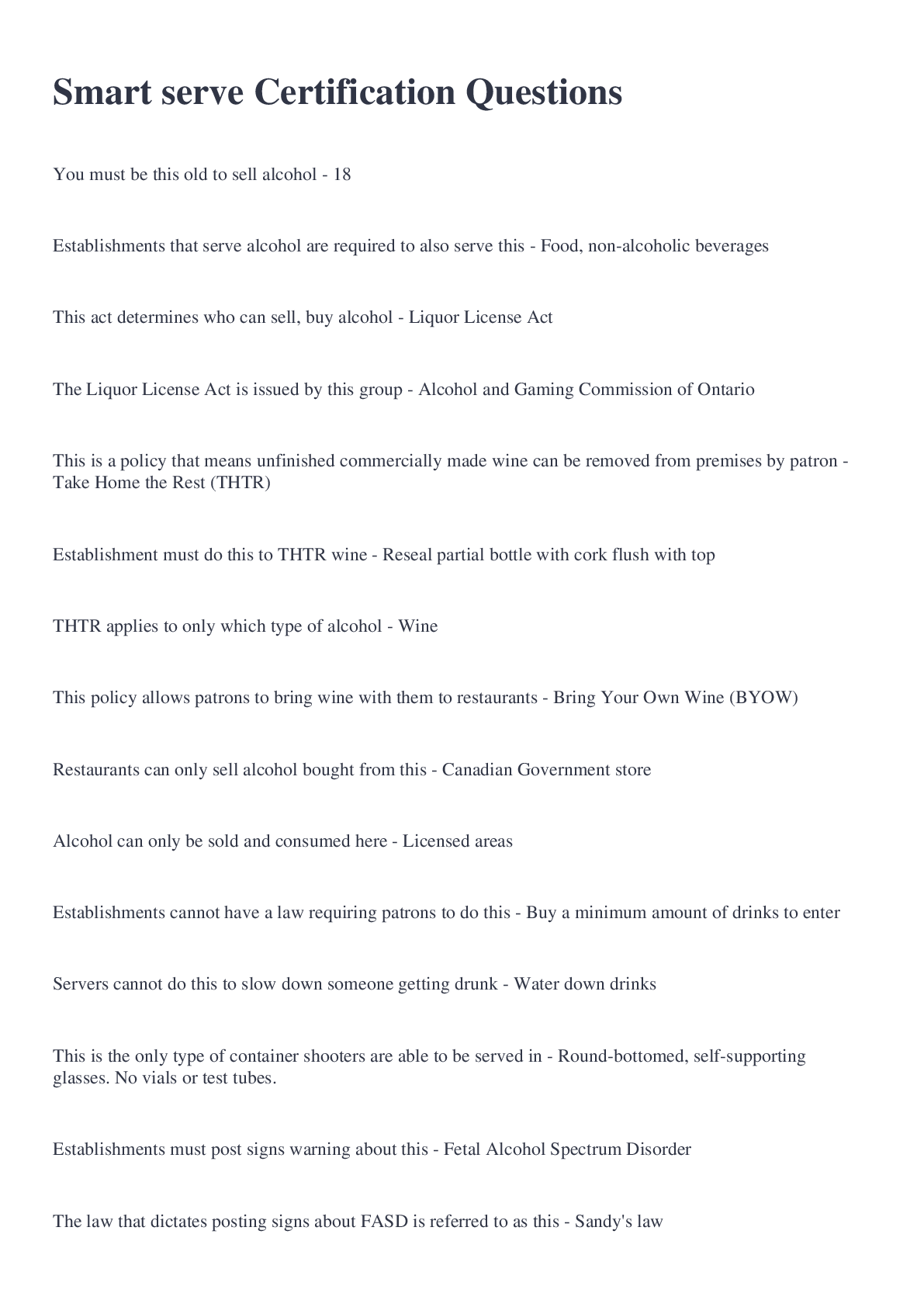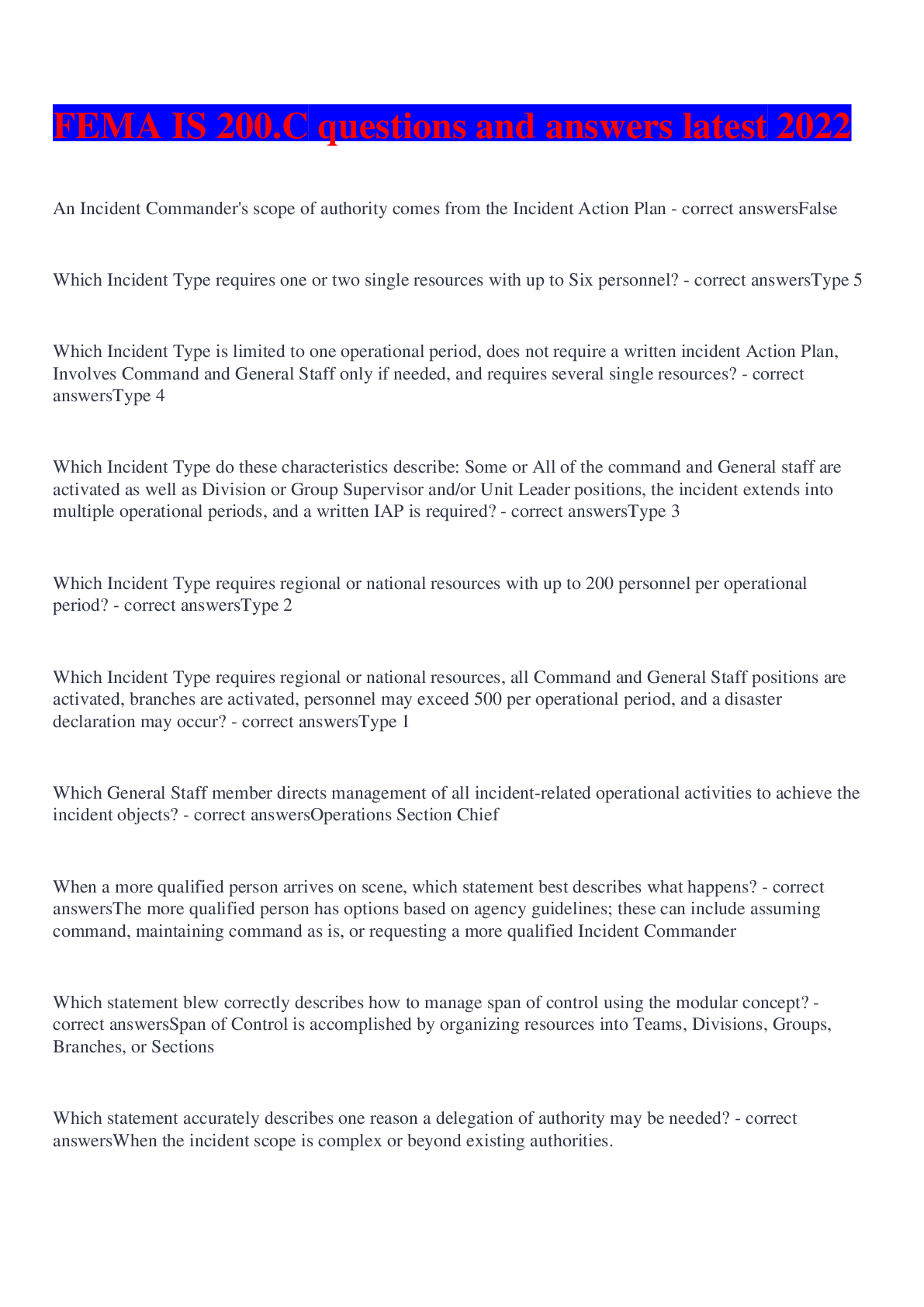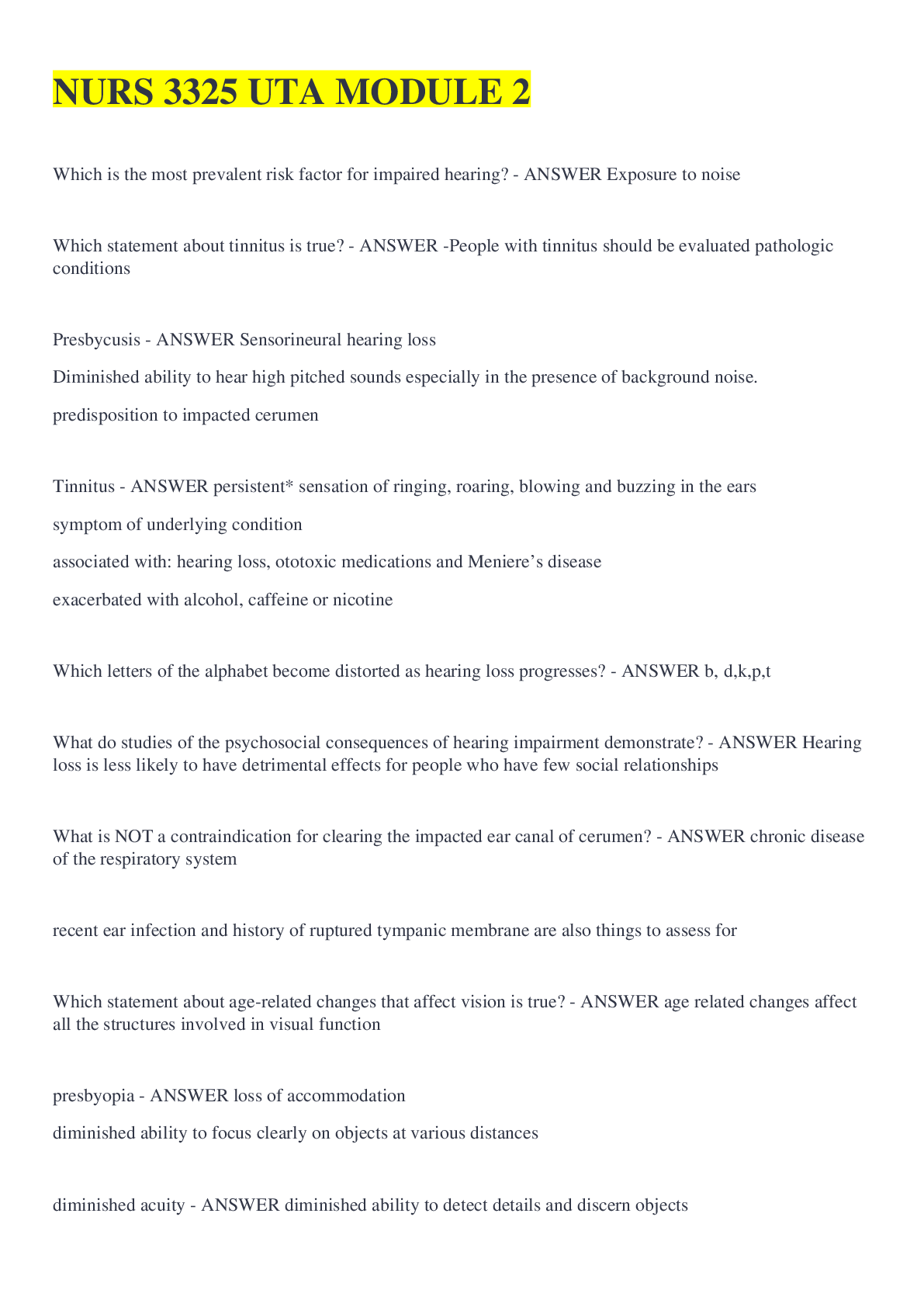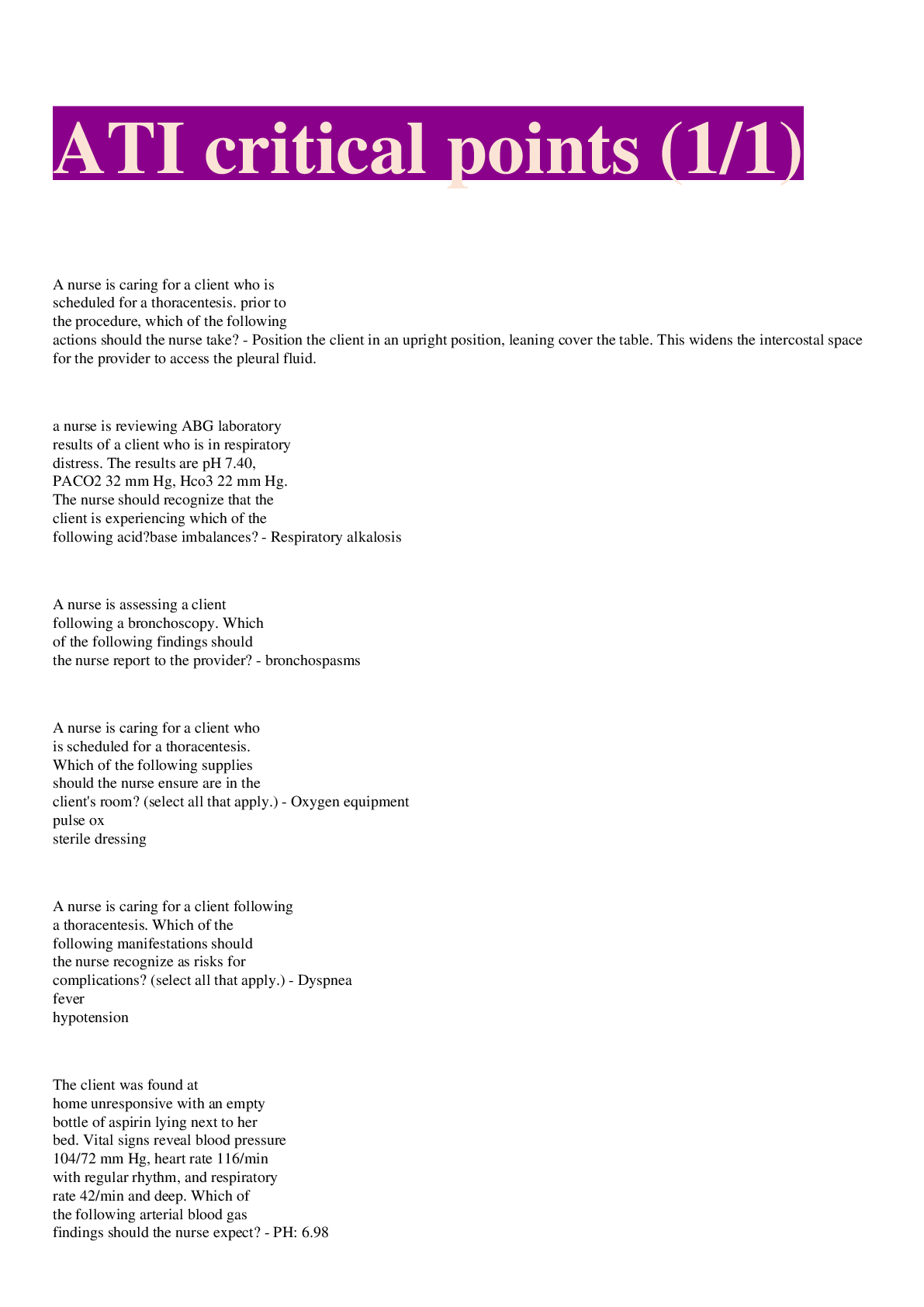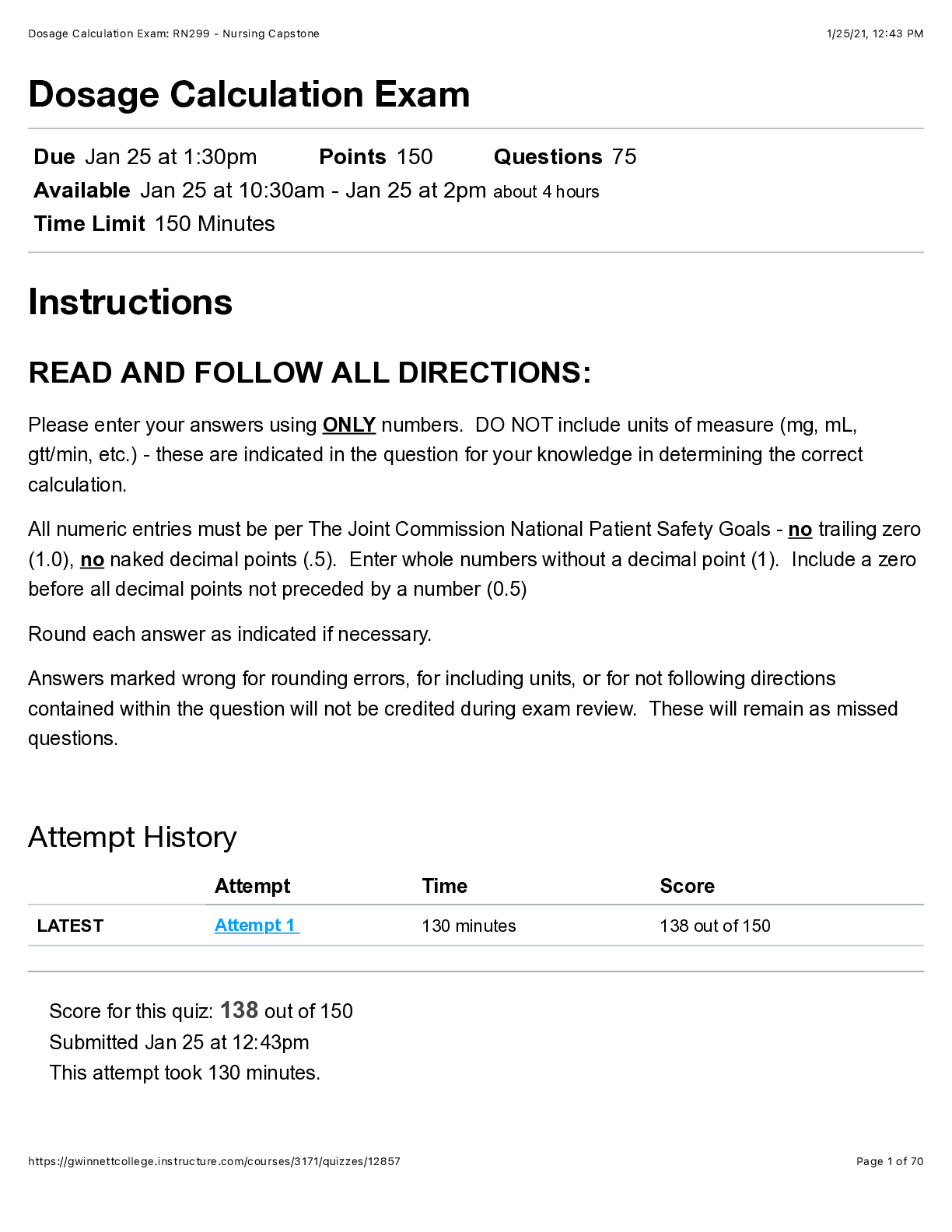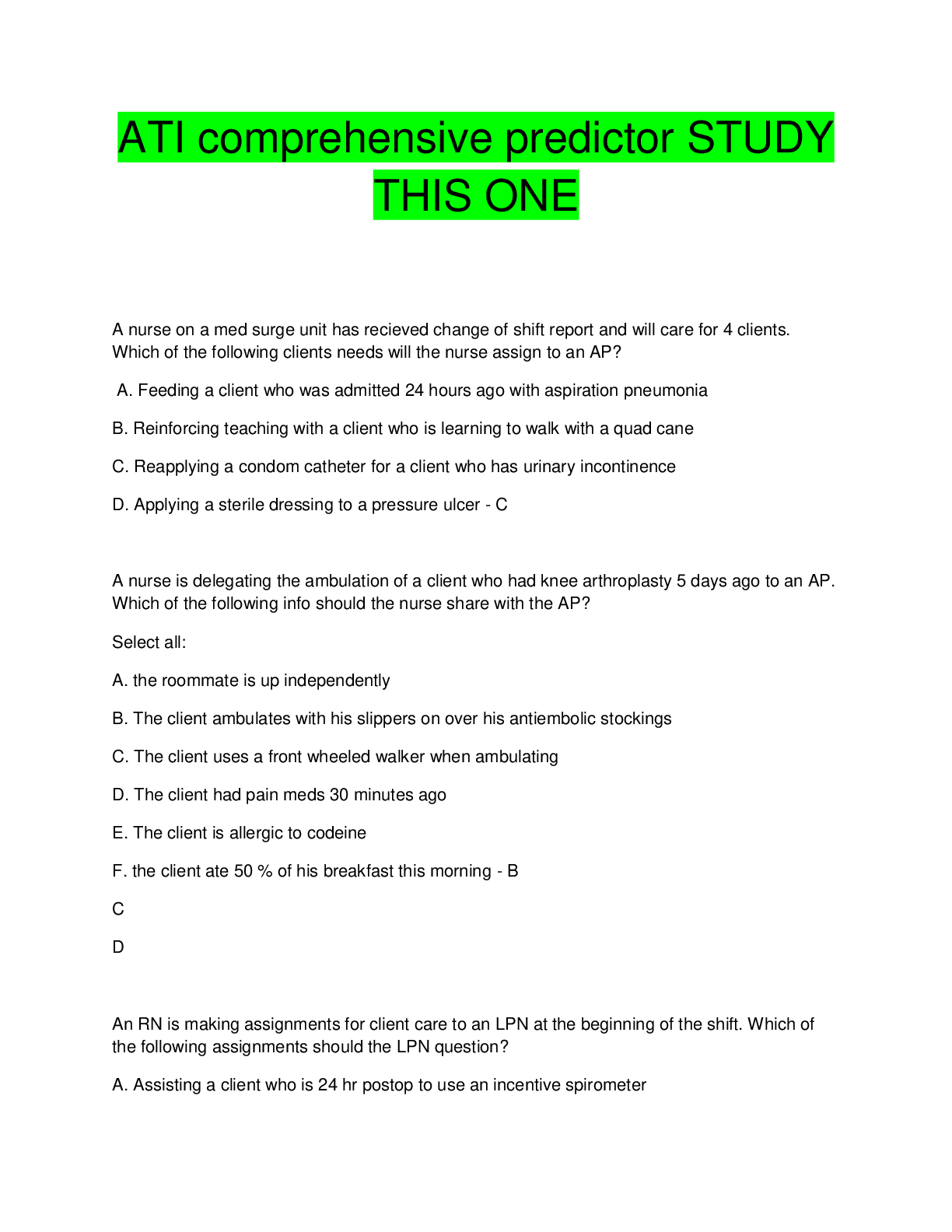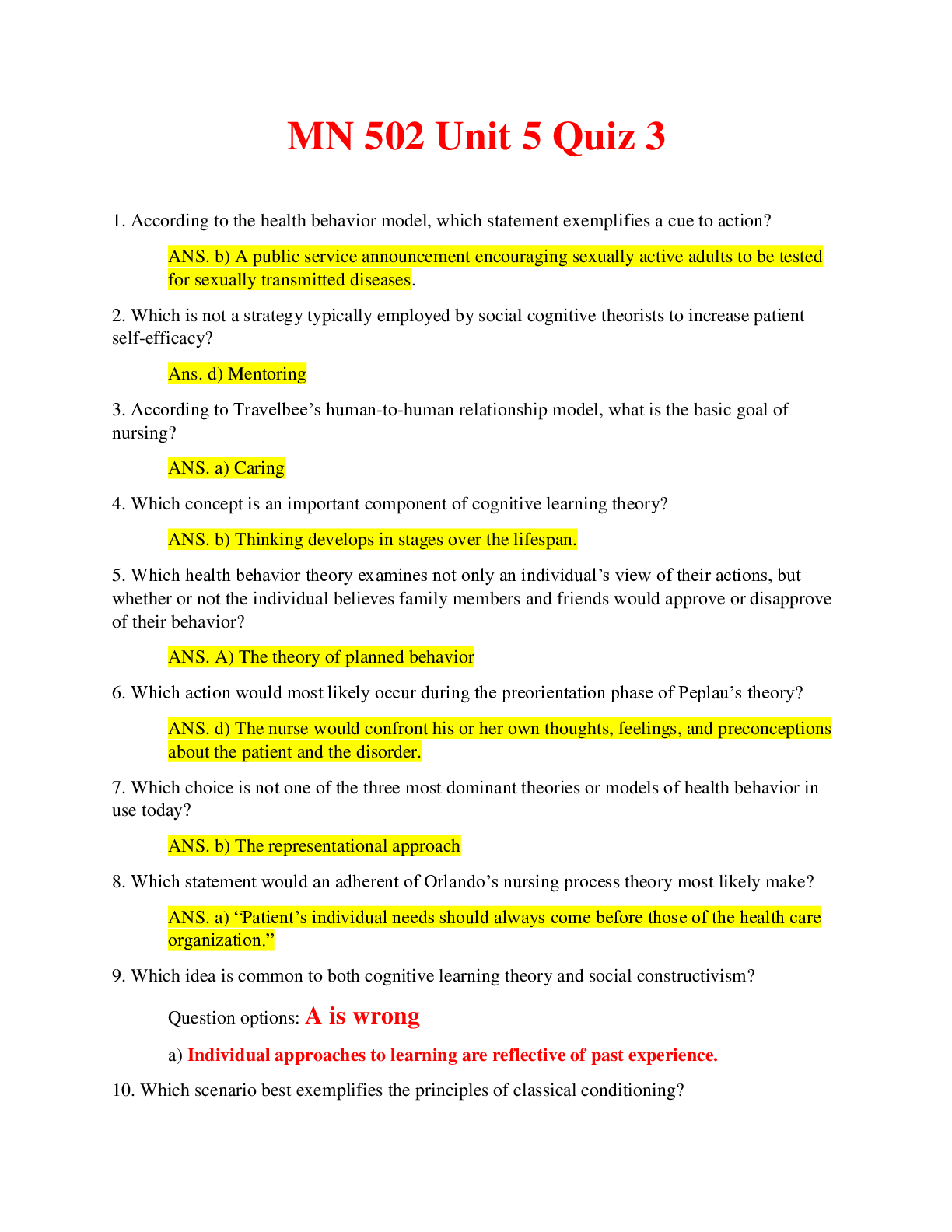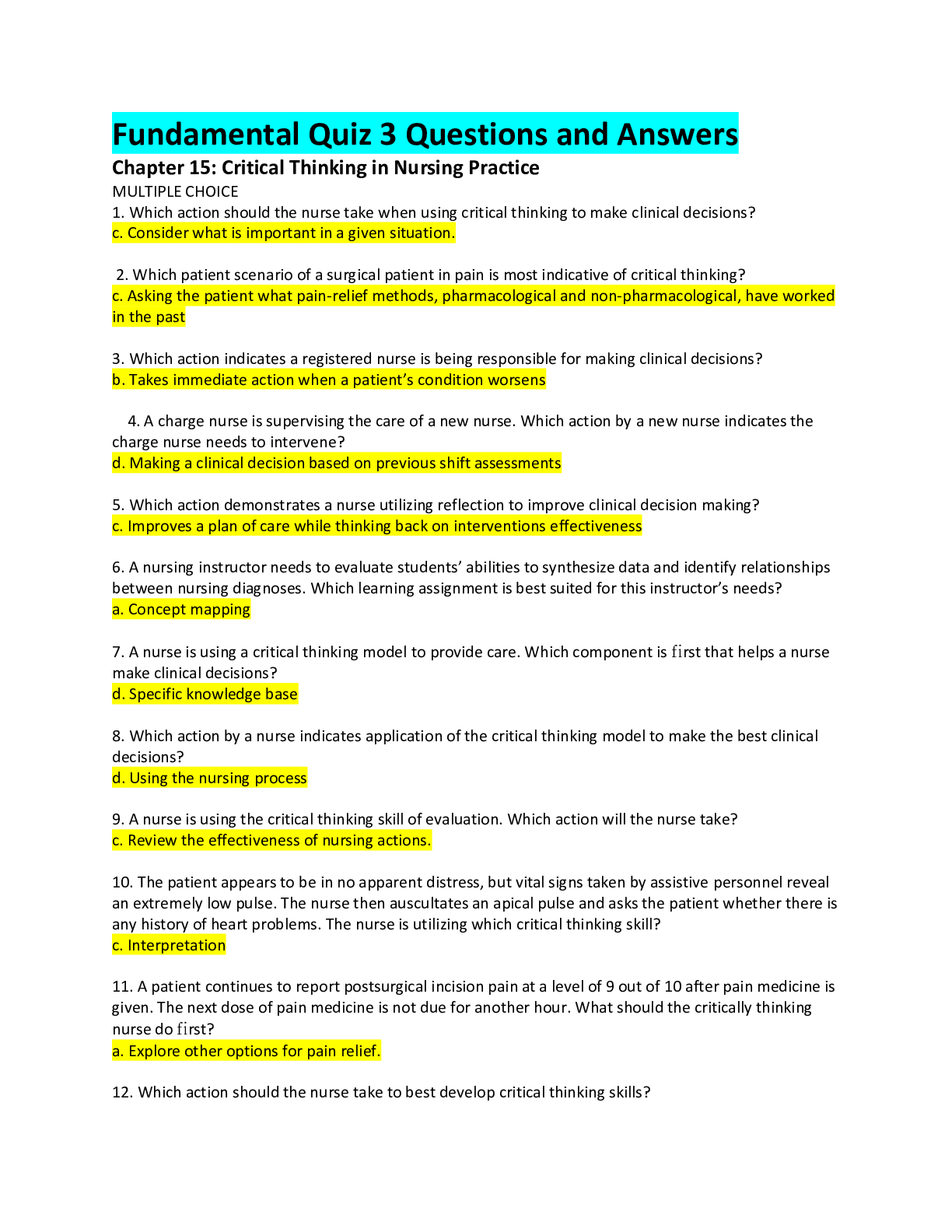Philosophy > EXAM > PHI 208 Chapter 3 questions and answers 2022/2023 (All)
PHI 208 Chapter 3 questions and answers 2022/2023
Document Content and Description Below
act utilitarianism The branch of utilitarianism that holds that the morally right action is the one that produces the greatest overall utility in each particular circumstance. Adaptability A ... feature of a moral theory that allows for variation in moral judgments depending on the specific features of each circumstance. equal consideration The principle that each particular individual's happiness, suffering, preferences, welfare, or other interests should be accorded equal weight when determining the best outcomes of an action; that is, no one's interests should figure more or less than anyone else's. Hedonism The view that pleasure is the most basic positive value, and pain is the most basic negative value. hedonistic utilitarianism The form of utilitarianism that identifies utility as pleasure and the absence of pain or suffering. Impartiality The attitude or disposition that does not give preference to the beliefs, values, or interests of any particular individual or group when making moral judgments or decisions. instrumental value Also called "extrinsic value," this is the value that something has insofar as it produces occurrences of positive value or prevents occurrences of negative value. intrinsic value The value that something has in itself, regardless of what it produces or prevents. preference utilitarianism The form of utilitarianism that identifies utility as the satisfaction of individual preferences. rule utilitarianism The branch of utilitarianism that holds that the morally right action is the one that would lead to the greatest happiness for the greatest number when followed as a general rule. Utilitarianism A consequentialist ethical theory that holds that morally right actions, laws, or policies are those whose consequences contain the greatest positive value and least negative value compared to the consequences of available alternatives. Utility A measure of well-being and the ultimate standard of value in utilitarianism. This is often defined as happiness, pleasure, and the absence of suffering, or the satisfaction of preferences. Consequentialist ethics (consequentialism) a form of moral reasoning that appeals to the consequences, results, or outcomes in determining whether something is right or wrong. Basics of Utilitarianism A consequentialist approach to moral reasoning. Holds that the action is morally right if it results in the best possible consequences relative to other actions, an action is morally wrong if it results in worse consequences than other actions. Utilitarian theory describes the best consequences as those with the greatest overall utility. Jeremy Bentham British Philosopher and founder of utilitarianism. John Stuart Mill 19th century Englishman, wrote Utilitarianism text in 1861, adopting Bentham's ideas and tried to communicate and defend them. [Show More]
Last updated: 2 years ago
Preview 1 out of 4 pages

Buy this document to get the full access instantly
Instant Download Access after purchase
Buy NowInstant download
We Accept:

Also available in bundle (1)

BUNDLE OF PHI 208 QUESTIONS AND ANSWERS 2022/2023
BUNDLE OF PHI 208 QUESTIONS AND ANSWERS 2022/2023
By FOREVERGREATIFUL2012 2 years ago
$29.5
5
Reviews( 0 )
$13.00
Can't find what you want? Try our AI powered Search
Document information
Connected school, study & course
About the document
Uploaded On
Nov 17, 2022
Number of pages
4
Written in
Additional information
This document has been written for:
Uploaded
Nov 17, 2022
Downloads
0
Views
144

